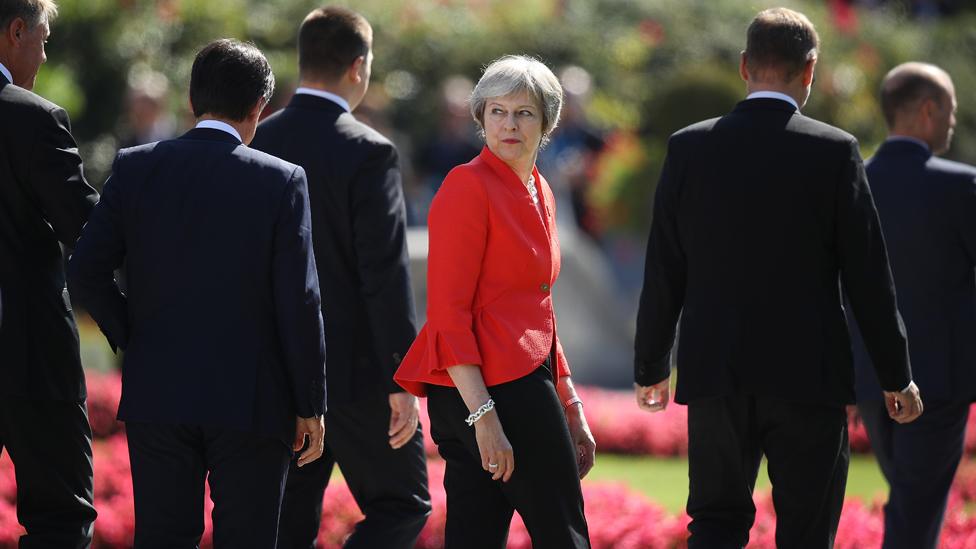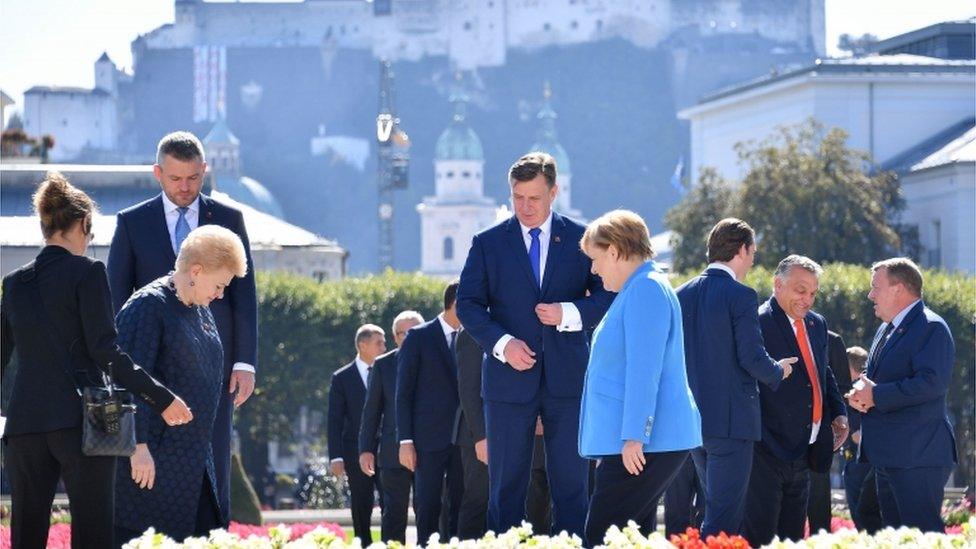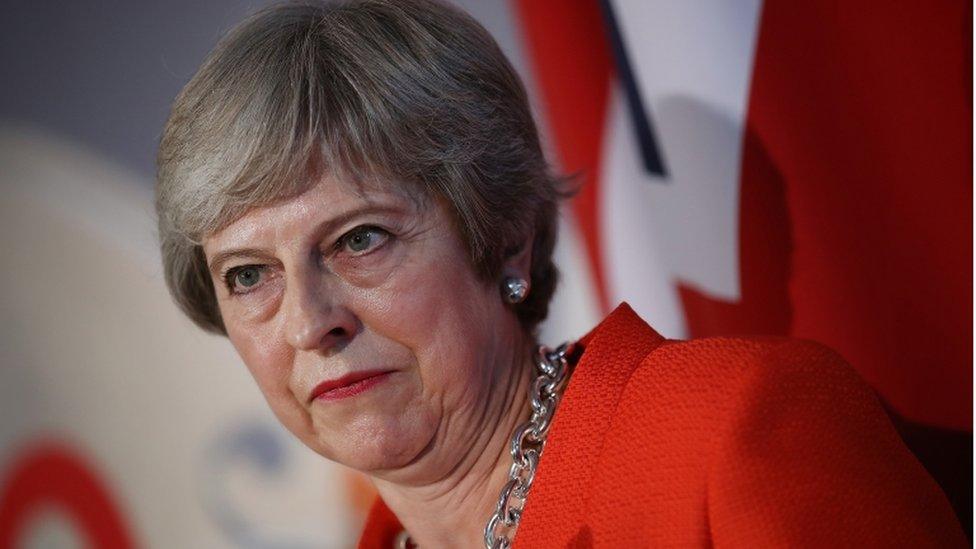Embarrassing rebuff for PM in Salzburg
- Published

What on earth happens now? Summits have setbacks. It's written into the script.
It's not unusual even for choreographed emergencies to take place because then, lo and behold, just when all seems lost, the apparent grit and determination of political leaders can rescue victory from the jaws of defeat.
What happened in Salzburg feels different though. That's partly because one of the principal players, the UK, was taken aback by the turn of events.
The hoped-for polite reception turned into a firm, embarrassing rebuff. But it's more acute because the expected platitudes were meant to be an insurance policy for the prime minister to protect her from increasingly vitriolic attacks at home.
If the EU had created a sense of momentum for Theresa May in the last 24 hours, the din of criticism in Westminster might have felt misplaced, even petty.
If the country's leader was making progress internationally, well then, the riposte to her enemies could have been: She has bigger things to worry about than her back benches, there is progress. Look! Progress!
Against the odds, despite the difficulties, she was meant to have been able to claim steady, if slow and troubled steps to the eventual outcome.
And if she had a united party at her back, the prime minister's defiant tone could have even found her favour at home.


She wouldn't be the first leader to try to rally her domestic troops by standing up to the EU, for refusing to roll over, holding firm in the face of continental misgivings, and grumblings about Britain's familiar demands for special treatment from their friends across the Channel.
The EU's rejection of her controversial compromise is so toxic because it leaves her surrounded by foes, and less insulated from criticisms that will come of her approach, and what seems to be the UK's total misreading of the EU's willingness to soften their position.
That's stirring up trouble already with some Tories pointing fingers of blame. One senior Tory demanded that questions be asked of her senior team, including Olly Robbins, her top European adviser, seen as the architect of the Chequers plan.
There are accusations swirling that the prime minister was "misled by bad advice", having been persuaded to pursue a compromise plan that cost her two cabinet ministers, and now rejected, "has left her humiliated".
Another senior Conservative told me the prime minister had been "in denial - as a strategy that will fail her and it will fail us", saying: "We are two years on and the basic political questions have not been answered."
Theresa May and her government have been trying to pursue a middle way, to find a stance between the basic options - a close "Norway style" deal, or a free trade deal roughly like Canada - a compromise that we've discussed many times here. It feels that the search for something else has been in vain.
But there are questions too about the extent of the EU's pushback.
Sources on the EU side express irritation at the UK's approach, at what they see as a strident tone the prime minister took in the last 48 hours.
The European Council is not the same as Prime Minister's Questions, it's suggested. But to kick out publicly, as they did in Salzburg, certainly runs the risk of pushing Theresa May too far - it gives succour to those arguing at home that the EU isn't capable of playing fair.
In the coming days there will, of course, be hype and clamour on both sides.
But it's true that, instead of throwing the prime minister a lifeline in the run-up to conference, they have chucked petrol on a fire that was already alight.
Some MPs are already suggesting that if the EU is going to react like this, perhaps the government's only choice might be to cut and run.
But take a breath - it is not the case that all is lost.
The overriding incentive on both sides is to try to find a deal.
The consensus is still that somehow, it can be done.
But perhaps what the Salzburg setback has laid bare is the biggest risk to the deal of all.
The two sides seem again and again to misunderstand the other's position. And talks where no-one is really listening maybe can't really be genuine conversations after all.
